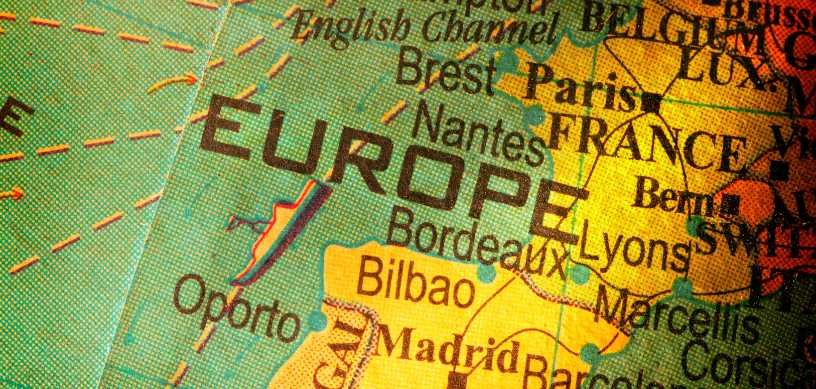Europe welcomes over 1.4 million international students every year, offering prestigious universities, affordable tuition, and one of the broadest ranges of Masters programs worldwide. Under the Bologna Process, most degrees span 1–2 years and award 60–120 ECTS credits, with countries like the UK offering 1-year options and others like France, Germany, Austria, and the Netherlands offering 2-year or hybrid fast-track formats.
| Key Factor | Summary |
|---|---|
| Target Audience | International & Indian students seeking Masters programs in Europe |
| Degree Duration | 1–2 years (60–120 ECTS) |
| Tuition Range | €0 – €25,000/year |
| Living Costs | €700 – €1,500/month |
| Best Countries for Masters | Germany, UK, France, Netherlands, Switzerland |
| Top Fields | AI, Data Science, Engineering, MBA, Law, Design, Finance |
| Work Rights | ~20 hrs/week + stay-back options up to 2 years |
Why Study Masters in Europe?
1. Prestigious Universities & Research Strength
Europe is home to some of the world’s leading institutions offering advanced academic instruction, core research facilities, and industry collaboration.
2. Wide Range of English-Taught Masters Programs
Students can choose from both mainstream and niche master’s degrees across business, arts, STEM, humanities, and interdisciplinary fields.
Europe offers thousands of English-taught Master's programs for international students.
3. Affordable or Tuition-Free Options
Public universities in Germany, Austria, Norway, and parts of Finland offer low-cost or zero-tuition options, making Europe economically accessible.
4. Cultural Immersion & Global Professional Networks
Studying in Europe allows students to experience multiple cultures, languages, and travel opportunities, enhancing personal and professional development.
5. Powerful Career Prospects
With access to major global companies, students benefit from internships, co-ops, multinational hubs, and strong post-study work rights.
Top Universities in Europe for Masters
- ETH Zurich (Swiss Federal Institute of Technology)
- Imperial College London
- University of Oxford
- University of Cambridge
- UCL (University College London)
- University of Edinburgh
- University of Manchester
- King’s College London
- Université PSL
- EPFL
- Technical University of Munich (TUM)
- Trinity College Dublin
Popular Masters Programs in Europe for International Students
- MBA
- Master in Health and Life Sciences
- Master in Psychology
- Master in Tourism and Hospitality Management
- Master in Artificial Intelligence
- Master in Law (LL.M)
- Master in Finance
- Master in International Relations
- Master in Marketing
- Master in Education
- Master in Data Science
- Master in Engineering
- Master in Environmental Science
- Master in Economics
- Master in Management (MiM)
- Master in Public Policy
- Master in Supply Chain Management
- Master in Computer Science
- Master in Design and Innovation
- Master in Architecture
Cost of Studying Masters in Europe
1. Tuition Fees by Country
| Country | Tuition Fees (Public Universities) | Notes |
|---|---|---|
| Germany | €0 – €400/semester | Mostly tuition-free |
| Norway | €0 | Free for all students |
| Austria | €700 – €1,500/year | Low cost |
| France | €2,000 – €5,000/year | Non-EU slightly higher |
| Italy | €2,000 – €4,000/year | Regional scholarships available |
| Netherlands | €2,000 – €5,000 (EU), higher for non-EU | Wide English programs |
| UK | €10,000 – €25,000/year | Mostly 1-year Masters |
| Ireland | €12,000 – €20,000/year | Strong tech market |
2. Living Expenses (City-Wise)
| City | Average Cost/Month |
|---|---|
| Berlin | €900–€1,200 |
| Paris | €1,200–€1,600 |
| Amsterdam | €1,200–€1,800 |
| Vienna | €900–€1,200 |
| Zurich | €1,500–€2,200 |
3. Funding Options
- Erasmus+
- Government scholarships
- University merit scholarships
- Need-based grants
- Fellowships for STEM, MBA, Law, Arts
Scholarships for Masters in Europe
| Scholarship Name | Country | Benefit |
|---|---|---|
| EMJMD | Multiple | Full funding |
| Eiffel Excellence | France | Tuition + stipend |
| Rhodes | UK | Fully funded |
| DAAD | Germany | Tuition + living stipend |
| ETH Zurich Excellence | Switzerland | Full support |
| Holland Scholarship | Netherlands | €5,000 grant |
| MAEC-AECID | Spain | Tuition aid |
| Chevening | UK | Fully funded |
| Clarendon Fund | UK | Full funding |
| EPFL Excellence | Switzerland | Partial funding |
| Italian Government Scholarship | Italy | Tuition + stipend |
| Gates Cambridge | UK | Fully funded |
Eligibility Criteria for Masters in Europe
You typically need:
Academic Requirements
Language Requirements
Documents Required
- SOP or motivation letter
- 1–2 LORs
- Resume/CV
- Portfolio (design/architecture/fine arts)
- Financial proof
- Valid student visa requirements
Job Opportunities After Masters in Europe
Students can pursue careers in:
- Public Health Specialist
- Business Analyst
- UX/UI Designer
- Supply Chain Manager
- AI/ML Engineer
- Data Analyst
- Legal Advisor
- Mechanical Engineer
- Investment Banker
- Architect
- Journalist
- University Lecturer
- Entrepreneur
Country-by-Country Masters Comparison
Masters in Germany
- Mostly tuition-free
- Strong in engineering, AI, CS
- 18-month stay-back visa
- High demand for STEM roles
Masters in France
- Top schools like HEC, INSEAD
- Affordable tuition at public universities
- 2-year post-study work visa
Masters in Netherlands
- Popular for Data Science, AI, Psychology
- High English proficiency
- Balanced tuition fees
Masters in United Kingdom
- 1-year Masters
- World-ranked universities
- 2-year Graduate Route visa
Masters in Switzerland
- Top research ecosystem
- Higher living cost, but high salaries
- Best for engineering, science, hospitality
Masters in Europe Application Checklist
- Shortlist 4–6 countries
- Select programs (1-year / 2-year)
- Check eligibility and tests
- Prepare SOP & LORs
- Arrange academic transcripts
- Take IELTS/TOEFL/PTE
- Apply for scholarships
- Submit university applications
- Apply for student visa
- Arrange housing & insurance

FAQs: Masters Programs in Europe
Which universities in Europe offer 1-year Masters?
Universities in the UK (Oxford, LSE, Cambridge, UCL, Imperial), Germany (LMU, TUM, HU Berlin, University of Bonn), and France (HEC Paris, INSEAD, Paris-Saclay) offer 1-year options.
Can Indian students study Masters in Europe?
Yes. Most programs accept Indian students with a relevant bachelor’s degree, English proficiency test (IELTS/TOEFL/PTE) and a valid study visa.
Is work experience required?
Only for programs like MBA and certain professional master’s degrees. Others accept fresh graduates.
Can international students work during study?
Most countries allow 20 hours/week part-time work during semesters.
Can students stay back after graduation?
Yes—6 months to 2 years depending on country visa regulations.
Need Guidance?
For support with choosing the best European university, scholarships, visas, and applications, contact Edwise International. We assist with study destinations including the Universities in UK, study in UK, study in USA, study in Ireland, study in Canada, study in Australia, study in New-Zealand, study in Singapore, study in Germany, study in France and more.






